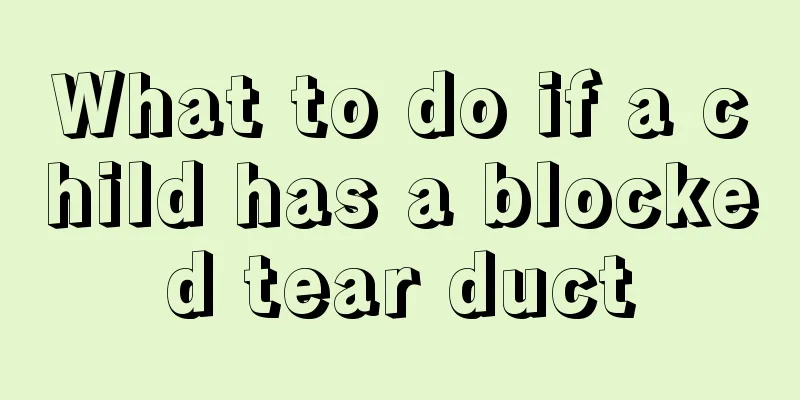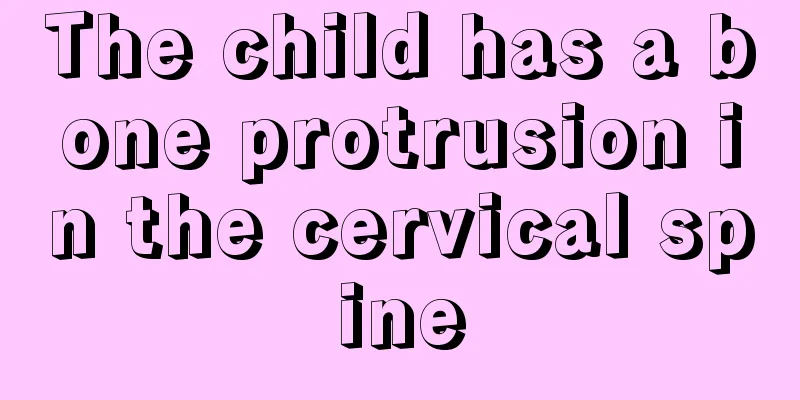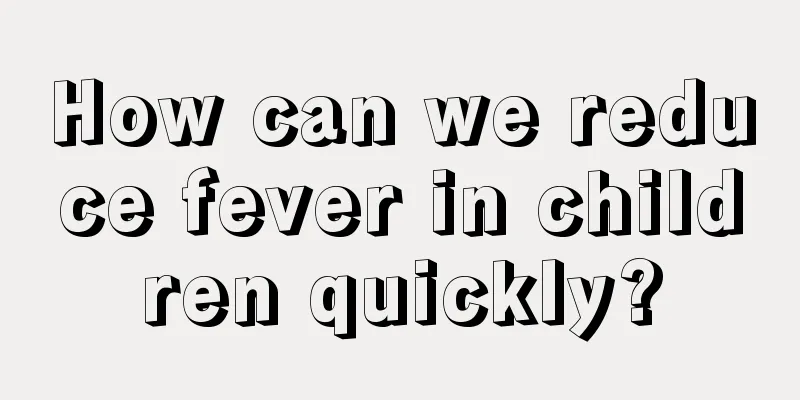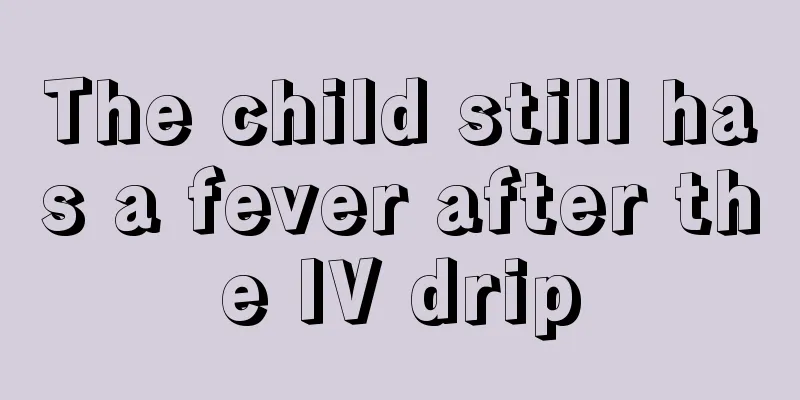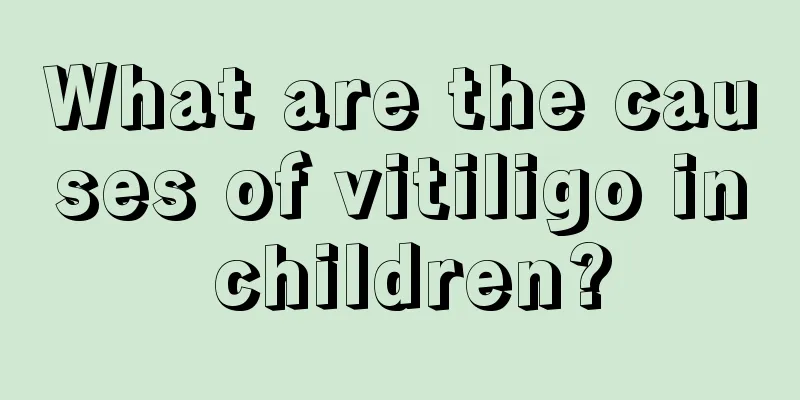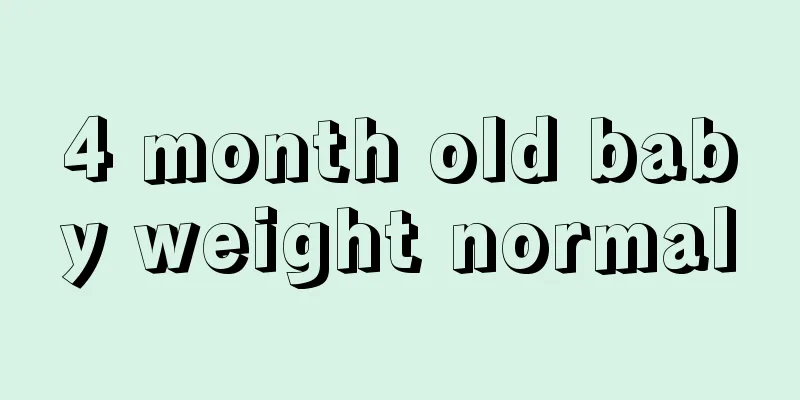Why are baby's palms wet when he has a fever?
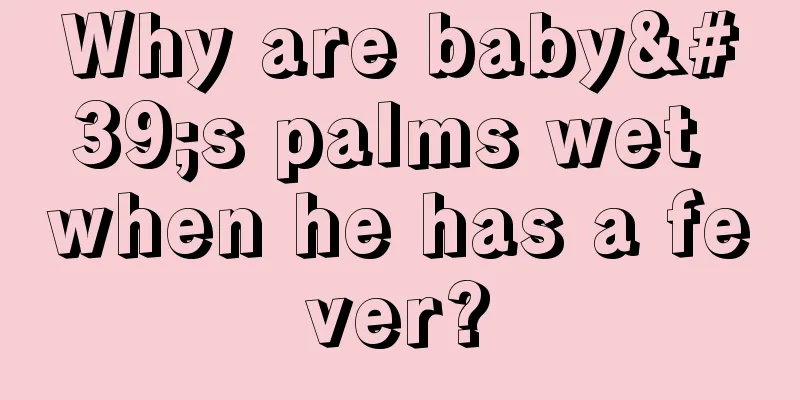
|
Infants and young children are prone to symptoms of fever and colds in daily life. When a child has a fever, they are prone to sweating, and their palms are often wet. This is mainly due to excessive sweating. When a child has a fever, it is important to measure the child's temperature in time to understand the child's temperature. Different methods should be used for treatment according to different temperatures. Let's take a look at this aspect. Why are baby's palms wet when he has a fever? If the baby's palms are wet, it is mostly related to excessive sweating. If the sweat secretion is vigorous, not only will the palms sweat, but the whole body may be wet with sweat. The reason why babies sweat too much may be that the weather is too hot in summer, or the quilt is too thick when the baby sleeps. These will make the child's body hot and the palms and soles of the feet are particularly moist. This situation is also related to a pathological night sweating in babies. Night sweating is caused by the incomplete development of the child's sweat glands, or the child's long-term intake of high-calorie foods, which can cause the baby to sweat profusely. Some children are very fat or suffer from childhood obesity, and their bodies sweat frequently, which causes their palms to be wet. What to do if your child has a fever of 39 degrees A child's fever of 39 degrees is already a high fever and should be treated promptly. If you cannot go to the hospital immediately, you need to observe the child's fever condition, such as whether the child has slow reaction, convulsions, or other abnormal reactions. Parents can use antipyretic drugs and do some physical cooling at home. A high fever above 39°C can easily cause convulsions in children. Children under 6 months old should be treated promptly when they have a fever because their condition changes rapidly. The World Health Organization recommends that no antipyretic drugs should be used for infants under 2 months old. Infants and young children under 3 months old should use drugs to reduce fever with caution, and physical methods should be used to reduce fever instead. If the antipyretic effect of medication is not good or the body temperature exceeds 39°C within two hours after taking medication, physical methods should be used to reduce the temperature. It takes a certain amount of time for drugs to take effect. When a child's temperature suddenly exceeds 40°C, physical methods should be used to reduce the fever immediately. What to do if your child has a fever of 39 degrees: 1. Warm water bath Dip a towel in warm water (the water temperature should not be too hot to touch) and wipe the neck, armpits, and thighs for 5 to 10 minutes. You can also use a commercially available "cooling patch" (or a household ice pack) on the forehead to help dissipate heat and reduce temperature. 2. Take antipyretics When your baby's fever exceeds 38.5 degrees, the doctor will consider using oral medications or rectal suppositories to reduce your baby's fever. Or when the above physical measures are not effective, oral antipyretics can be taken. |
<<: What to do if your child can't recite the book
>>: Why do teenagers sweat on their palms?
Recommend
What is cryptorchidism in children?
As a parent of a baby boy, you must be alert to a...
The formation of behavior habits of primary school students
When children are young, they are definitely igno...
How to solve the problem of children's hair becoming yellower and yellower
The problem of children's hair becoming incre...
What should I do if my eight-month-old baby has a cold and cough?
In summer, the weather is quite hot, so almost ev...
What to do and how to treat a child's red face
Parents don't care much about their children&...
What is the pink polyp on the vaginal opening of a baby girl?
Pay attention to the hygiene of the baby girl'...
When will baldness disappear?
Baldness on the back of the head is not a serious...
What should I pay attention to when eating for a five-month-old baby?
Every child's infancy is very important. A lo...
What to do if a child stutters
There are always some problems in the process of ...
What is the matter with the baby's calves being bent?
Now we pay special attention to children's he...
Teenagers' schedule
The work and rest time of each age group is diffe...
The causes of otitis media in children are all ignored by everyone
Children's bodies are usually fragile and can...
Causes and treatments of armpit ulcers in babies
Armpit ulcers in babies look very scary. Recently...
What medicine should children take for measles
https://static.cndzys.com/20161114/59af41354329ee...
How often should chest compressions be given to children?
Chest compression and artificial respiration are ...

